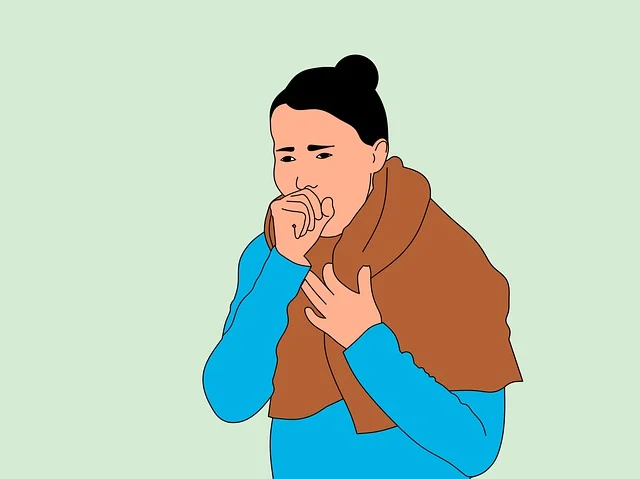Figuring out the best way to help with a cough depends on why you have it. You can try things like honey or gargling with saltwater at home. If those don’t work, you can get medicines from the store or your doctor.
There are some natural things you can try to feel better if you have a cough.
But, remember that the Food and Drug Administration (FDA) doesn’t check herbs and supplements. So, if you use them, you might get low-quality stuff or things that aren’t good for you.
If you want to use natural stuff for your cough, make sure you know where it’s coming from and what brand it is. Some natural things can mix up with the medicines you take and cause problems.
It’s a good idea to talk to a doctor before you try any supplements.
Natural Cough Remedies:
1. Ginger
Ginger might help with a dry or asthmatic cough because it has things that lower inflammation. It can also make nausea and pain feel better.
A few older studies looked at how ginger works on coughs. In 2015, one study checked out different natural things used in Asian medicine, and ginger was one of them.
They found that ginger, like honey and other things, has been used for a long time in traditional medicine.
This is a big deal because it means these things have been used for a really long time. But the researchers said more studies are needed to really know how well they work.
People often use ginger in food or make tea with it. But, sometimes ginger tea might make your tummy or chest feel weird.
2. Steam
If you have a cough that makes mucus or phlegm, which is called a wet cough, using steam might help.
Here’s how you can try it: Take a hot shower or bath and let the bathroom fill up with steam. Stay in the steam for a few minutes until you start feeling better. After that, drink some water to cool down and stay hydrated.
Another way is to make a steam bowl. Here’s what you do:
- Get a big bowl and fill it with hot water.
- Put herbs or oils like eucalyptus or rosemary in the water. These can help with congestion.
- Lean over the bowl and cover your head with a towel. This helps you breathe in the steam.
- Keep breathing in the steam for around 10 to 15 minutes.
Doing steam one or two times a day might be helpful.
But, even though many people think steam helps with coughs and other problems, not all studies show the same thing. In 2017, a study found that using steam for cold symptoms didn’t really make the symptoms better.
3. Saltwater Gargle
People have been using saltwater gargles for a long time to help when their throat is sore or they have a cold. It might help by making mucus loose and easing some pain.
But, it might not really help to lower the amount of virus if you’re sick with something like COVID-19. In a study from 2021, researchers looked at different mouthwashes to see if they could help stop the spread of COVID-19. They found that some store-bought mouthwashes could lower the amount of virus, but a saltwater mix made in a lab couldn’t kill the virus very well.
To make a saltwater gargle, you can:
- Mix 1/2 teaspoon of salt into a cup of warm water until it disappears.
- Let the mixture cool a bit before you use it to gargle.
- Hold the mixture in the back of your throat for a little while, then spit it out.
- Do this a few times each day until your cough gets better.
But, young kids and people with high blood pressure shouldn’t use saltwater gargles.
5. Turmeric
Turmeric has something inside it called curcumin, and that might help with things like inflammation, viruses, and bacteria. It could also be helpful if you have a dry cough.
The curcumin in turmeric works better when you have it with black pepper. You can mix 1 teaspoon of turmeric and 1/8 teaspoon of black pepper into a drink, like cold orange juice, and have it. You can also make a warm tea with it.
People have been using turmeric for a long time to help with coughs and other breathing problems. In some kinds of medicine, like Ayurvedic medicine, it’s been used to treat things like bronchitis and asthma.
You can find turmeric as a spice, or you can get it in a pill.
6. Peppermint
Peppermint has something called menthol, and it can help make your throat feel better when you have a cough. It numbs the nerves in your throat that get irritated from coughing, which can help with pain and make you feel less like coughing.
Peppermint can also help with stuffiness, and it has things in it that fight against bacteria and viruses.
You can enjoy peppermint in different ways. You can drink peppermint tea or have peppermint candies. Drinking peppermint tea before bedtime might help with nighttime coughs.
You can also use peppermint oil to make the air smell nice and soothing.
- Masala Chia/Tea
Chai tea has become really liked in the US lately because of its yummy taste. In India, chai is used to help with a sore throat and dry cough.
Chai tea has good stuff in it, like cloves and cardamom, that can help fight off bad things in your body. Cloves might also help you get rid of mucus when you cough.
Chai tea also has cinnamon, which can help with swelling in your body.
8. Honey
Grown-ups and kids who are 1 year old or older can use honey to help with coughing, whether it’s during the day or at night.
Honey has things that can fight off germs and can also make your throat feel better by coating it.
A study in 2007 found that honey worked better than a cough medicine called dextromethorphan in stopping nighttime coughs in kids.
You can try having a spoonful of honey a few times a day, or put it in tea or warm water to drink.
But remember, babies under 1 year old should not have honey because it could be harmful to them.
9. Antitussive Cough Syrup
Cough medicines that are antitussive work by calming down the urge to cough. This is really helpful for dry coughs.
Certain antitussive medicines have codeine and need a doctor’s prescription. Others you can get without a prescription. These often have things like dextromethorphan, camphor, or menthol in them.
Tips to help prevent a cold
You can’t always avoid getting a cold or a cough, but there are ways to lower the chances:
- Stay away from people who are sick: Keep a safe distance from those who have a cold, flu, or cough.
- Wash hands often: Use soap and warm water to wash away germs. Kids can learn how to do this right. If you’re out, use hand sanitizer.
- Keep things clean: If someone at home is sick, regularly clean the kitchen and bathroom with disinfectant. Wash bedding, towels, and soft toys in hot water.
- Drink enough fluids: Stay hydrated by drinking water, herbal teas, and other drinks.
- Manage stress: Stress can affect the immune system, so try exercising, meditating, or doing relaxation techniques.
- Get good sleep: Aim for 7–9 hours of sleep each night.
- Boost your immune system: During cold and flu season, think about taking zinc, vitamin C, and probiotics. Ask your doctor before starting new supplements.
- Allergies can look like colds. Avoid triggers like pollen, dust, animals, and mold. Talk to a doctor about allergy shots or medicines.
When to See a Doctor?
If you have a cough and experience the following symptoms, it’s important to see a doctor:
- Phlegm that smells bad and is green or yellow.
- Feeling very cold and shivering.
- Becoming dehydrated, which means not having enough fluids in your body.
- Having a fever higher than 102°F (38.9°C).
- Having a fever that lasts for more than 3 days.
- Feeling weak and lacking energy.
If your cough makes you cough up blood or makes it hard to breathe, it’s an emergency. You should call 911 or go to the nearest emergency room right away.


